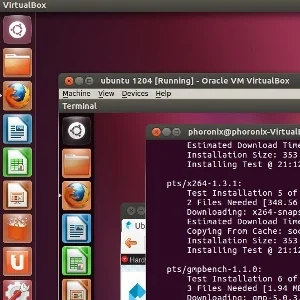UEFI Unaccepted Memory Support Appears Ready For Linux 6.5

UEFI unaccepted memory support allows for virtual machines to not "accept" the memory until it's actually needed. Right now all the memory needs to be dealt with at boot time which can delay the boot process but unaccepted memory support can lead to much faster TDX VM boot times as a result. AMD also built off Intel's code for equipping unaccepted memory support into their SEV-SNP path.
This accepting of memory later on / as-needed is laid out in the UEFI 2.9 specification around memory acceptance. Besides leading to lower boot times for Intel TDX and AMD SEV-SNP guest VMs, it also yields lower memory overhead of the systems. The boot time savings can be around 2.5x faster for a VM with 4G of RAM or around 4x faster when being dealt 64G of memory.
After going through more than a dozen iterations over the past two years, the UEFI unaccepted memory handling along with the Intel usage of it appears ready for the next kernel. Yesterday the patches were queued up into tip/tip.git's x86/cc branch.
With the unaccepted memory patches making it now to a TIP branch, barring any last minute issues it's then expected that this feature code will be submitted during the Linux 6.5 merge window opening up around the end of June. The patches prepare unaccepted memory for both Intel Trust Domain Extensions (TDX) and AMD Secure Encrypted Virtualization - Secure Nested Paging (SEV-SNP).
Add A Comment

